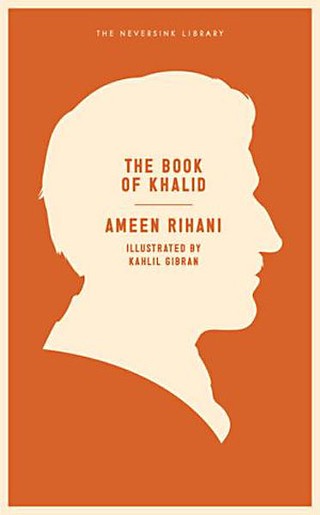Book Review: Summer Fiction
Hackers, heretics, and spies, oh my
Reviewed by Jessi Cape, Fri., June 15, 2012
Maps to the Middle East
The Book of Khalid
by Ameen RihaniMelville House, 320 pp., $15 (paper)
Celebrating its centennial last year, Ameen Rihani's The Book of Khalid is a beautiful example of the lasting power of creative spirits in a complicated world. One hundred years seems miniscule in Rihani's masterful microcosm. The first Arab-American novel written in English, The Book of Khalid has been newly re-released as part of Melville House's The Neversink Library series, devoted to overlooked literature.
Rihani weaves a tale of two characters on a cross-Atlantic voyage that develops into a lesson in the balance of pleasure and pain, spiritual discovery, and friendship. Narrative observations reflect Rihani's autobiographical insight from life – as an Arab American and pioneer in bridging gaps between the perpetually opposing forces involved in Eastern and Western philosophy. Laced with predictive views of the modern Arab Spring, the novel's themes include a perceived universal need for reform, the nuances and beauty of human interaction, and the precarious teeter-totter of a dreamer's life. Heady and poetically intense, this book is a work of art.
The Book of Khalid tells the story of two friends' round-trip adventure to New York from their hometown in Lebanon. Divided into three parts, the novel is framed as a found manuscript, describing the joint journey of Shakib and Khalid, yin-and-yang adolescents full of wanderlust and hope. Once they arrive in New York and begin to navigate the city's underground artistic mecca, their paths start to split. Khalid, the dreamer, pursues massive philosophical endeavors, drifting further into realms of the artistic and spiritual unknown (and developing a penchant for peaceful pyromania). His social circle expands to include witches, psychic mediums, beatnik literary oddballs, and other generally belligerent individuals. Meanwhile Shakib, ever-faithful, ever-watchful, records in his journal Khalid's adventures, including jail time and the two men's journey home to Lebanon. Upon their return, idealistic Khalid's struggles hit fever pitch as he attempts to inspire an educational, spiritual, and intellectual revolution that predictably does not go over well.
As if Rihani had a crystal ball, Khalid's motives and actions are reminiscent of the Occupy movement, the Egyptian revolt, and other recent global events of political and social awakening. Rihani provides an ingenious glimpse of both progressive beliefs and hesitancy toward change in this cerebral and poignant work of fiction. He also uses humor and wit to tackle the big job of explaining the fragility of the human body and the complexity of the soul. Despite some occasional Yoda-esque syntax, his flowery linguistics strike an amusing balance between piety and irreverence. Rihani's tendency to run the tangential gamut requires reader dedication, but his funny snippets of reality-biting plot points create a captivating dynamic, and plot insertions of booze, food, and sarcastic but strategic dialogue pleasantly thin the heavy word gravy.
Rihani's use of classic elements to paint a picture of the fistfight between traditional culture and bohemian idealism result in a book that still amazes a century later. Best read with stretched and flexed mental muscles, The Book of Khalid is a jaw-dropping – and sometimes head-scratching – melding of literary prowess and gorgeous language. Where Thoreau leaves you desiring a long trip to the woods, Rihani gooses you into a symphonic headspace of contemplation and a belief in the power of artful revolution in political chaos.











